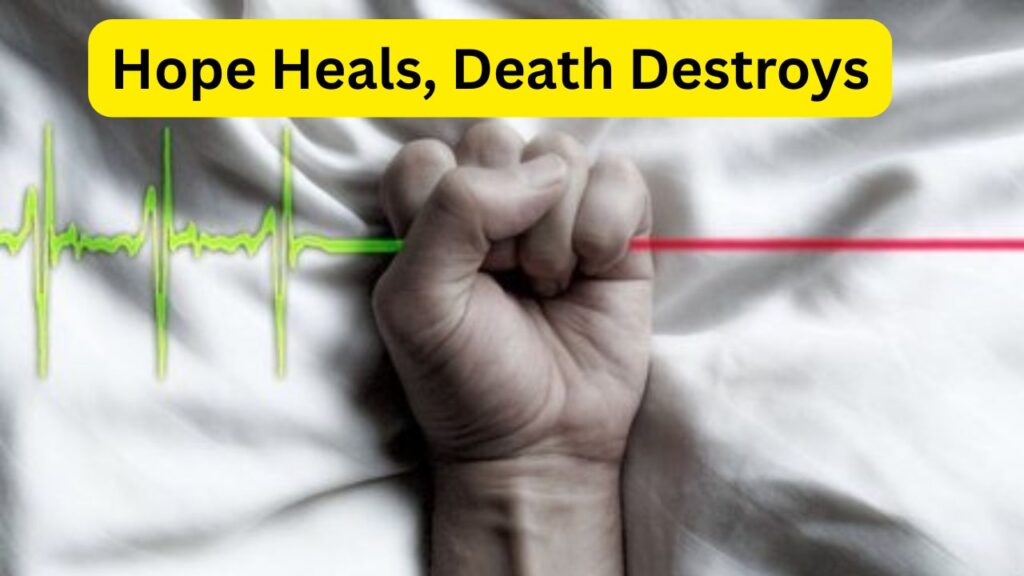Legalised Euthanasia – The debate around euthanasia and assisted suicide remains one of the most sensitive moral and ethical topics in Australia. While proponents argue for individual autonomy, organisations like HOPE Australia stress that legalising euthanasia undermines the value of human life. Through compassion, support, and palliative care, HOPE and similar advocacy groups aim to demonstrate that there are safer, more humane alternatives to ending suffering. This article explores how hope and care can save lives and why Australia continues to resist the push for legalised euthanasia.

Why Legalised Euthanasia Threatens Human Dignity in Australia
Legalising euthanasia in Australia could lead to the normalisation of taking life, undermining the foundation of medical ethics. The Hippocratic Oath, which guides doctors to “do no harm,” becomes compromised when killing is seen as an acceptable treatment. Vulnerable Australians — including the elderly, disabled, and those battling depression — may feel pressured to end their lives prematurely. Instead of promoting death as a solution, Australia’s healthcare system should invest in better mental health services, aged care, and pain management programs that reaffirm life’s inherent value.
Hope Australia’s Mission to Protect Life and Provide Alternatives
HOPE Australia is a national coalition dedicated to opposing euthanasia and assisted suicide while promoting life-affirming alternatives. The organisation supports comprehensive palliative care, improved mental health resources, and stronger family support systems. Their campaigns highlight real stories of individuals who found peace and dignity through compassionate care, not through ending life. By engaging communities, lobbying policymakers, and educating the public, HOPE ensures that compassion leads to care, not killing. Their ongoing advocacy plays a crucial role in shaping Australia’s ethical and legislative stance on this issue.
| Aspect | Details |
|---|---|
| Organisation Name | HOPE Australia |
| Core Mission | Oppose euthanasia & promote palliative care |
| Focus Area | Public awareness, education, and legislation |
| Alternative Promoted | Compassionate care and community support |
| Website | noeuthanasia.org.au |
The Power of Compassionate Care Over Assisted Suicide
Compassionate care offers what euthanasia cannot — genuine emotional, spiritual, and physical healing. With proper end-of-life care, patients can live their final days in dignity, surrounded by love and support. In Australia, advancements in palliative medicine continue to improve pain management and comfort for terminally ill individuals. Rather than promoting death as a solution, compassion in healthcare seeks to alleviate suffering without eliminating the sufferer. HOPE advocates for training more professionals in this field so every Australian can experience comfort and dignity until the end.
Strengthening Palliative Care in Australian Communities
Expanding palliative care access across Australia ensures that no one feels abandoned in their time of need. From regional hospitals to home-based support, the goal is to bring comfort, counseling, and companionship to patients and families. Governments and non-profits alike must prioritise funding for such services, recognising that a strong care system reduces the demand for euthanasia. Through compassion-driven initiatives, Australia can reaffirm its belief that every life matters — and that love, not lethal injection, is the true form of mercy.
Frequently Asked Questions (FAQs)
1. What does HOPE Australia stand for?
HOPE stands for a coalition dedicated to opposing euthanasia and promoting compassionate alternatives in Australia.
2. Why is euthanasia considered dangerous?
It risks pressuring vulnerable individuals into ending their lives and undermines medical ethics that value life.
3. What are the alternatives to euthanasia?
Alternatives include palliative care, counseling, emotional support, and improved mental health services.
4. How can people support HOPE Australia?
By donating, volunteering, or spreading awareness through their website and local advocacy campaigns.


